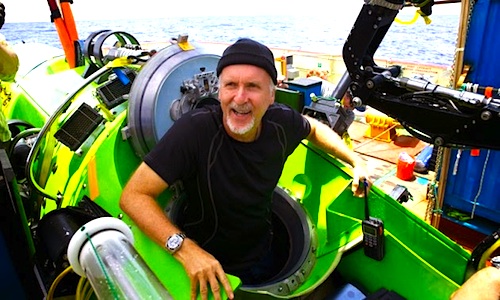 By Joe Bendel. Simon Boisvert might be the world’s most misunderstood unknown filmmaker. Through sheer gumption, he produced six independent features, but he is keenly aware of their various flaws. Viewers might be unfamiliar with his films, but they will come to fully understand them all when the Quebecois filmmaker turns the camera on himself in Bold & Brash: Filmmaking Boisvert Style, which screened during the 2014 Fantasia International Film Festival.
By Joe Bendel. Simon Boisvert might be the world’s most misunderstood unknown filmmaker. Through sheer gumption, he produced six independent features, but he is keenly aware of their various flaws. Viewers might be unfamiliar with his films, but they will come to fully understand them all when the Quebecois filmmaker turns the camera on himself in Bold & Brash: Filmmaking Boisvert Style, which screened during the 2014 Fantasia International Film Festival.
Boisvert may have been tragically influenced by Neil LaBute’s In the Company of Men. For some reason the Aaron Eckhart character struck such a chord, he inspired the protagonist of Boisvert’s debut, Stephanie, Nathalie, Caroline & Vincent. To save money, Boisvert played Vincent himself, but he readily acknowledges the limitations of his acting chops. Nonetheless, the film garnered a bit of notice, even though it released on VHS on September 11, 2001.
For at least one commentator, Boisvert is a French Canadian Ed Wood, but the comparison is rather unfair. He sort of has his critical champions, who can find worthiness in some, if not all of his films. Arguably, his talky, relationship-driven films are not so very different aesthetically from the work of Henry Jaglom (is that a heresy to suggest?). However, Boisvert has had more than his share of bad luck, including uncooperative crews and sound mixing disasters.
While Boisvert’s candidness is often surprising, his tenacity is equally impressive. Despite his frustrations, he has gotten his films distributed in some form, except for Barmaids, which he was forced to shelve for purely technical reasons. Aspiring filmmakers should draw some real business lessons from his experiences.

Ironically, Bold & Brash looks considerably more polished than many of the films it surveys. Were it not for the raggedness of many of the illustrating film clips, it could pass for a more conventional documentary on indie filmmaking. At times, Boisvert argues sometimes budget constraints really are too severe, as when he produced the concert scenes in the rock & roll melodrama Venus de Milo with less than twenty extras. Still, his resiliency is impressive.
Oddly enough, Bold & Brash might find his widest audience yet. Consistently entertaining and rather insightful, it ought to be programmed somewhere like Anthology as part of a full Boisvert retrospective. It was one of the pleasant surprises at this year’s Fantasia.
LFM GRADE: A-
Posted on August 8th, 2014 at 1:31pm.




